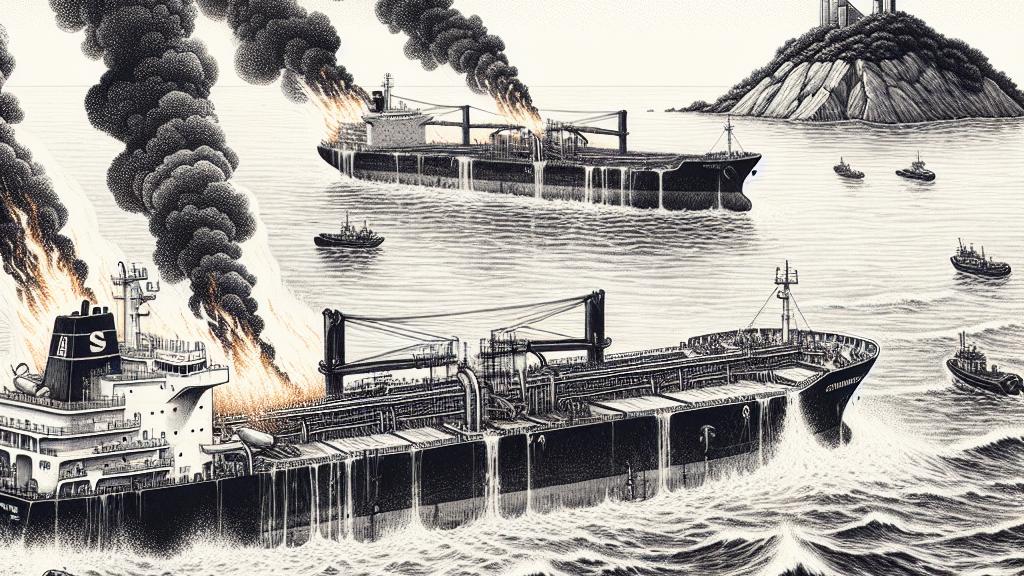Collision Catastrophe: Malaysia's Tanker Troubles Unveiled!
Overview
- A significant incident involving tankers near Pedra Branca has raised safety alarms.
- The Hafnia Nile, carrying hazardous naphtha, poses serious environmental risks.
- Malaysian authorities are rigorously investigating and managing the aftermath of the collision.

Detailed Incident Overview
On the morning of July 19, 2024, a major maritime incident occurred approximately 55 kilometers northeast of Pedra Branca island, Singapore. Two vessels were involved: the Singapore-flagged Hafnia Nile and the Sao Tome and Principe-flagged Ceres I. The Hafnia Nile was loaded with approximately 300,000 barrels of naphtha, a flammable petrochemical substance. The collision ignited both vessels, prompting urgent safety measures from Malaysia's maritime authorities. Following the fire, both tankers managed to anchor unexpectedly in Malaysian waters, highlighting vulnerabilities in the maritime safety regulations governing these shipping lanes.
Emergency Response and Environmental Protection Measures
In response to the dire situation, the Malaysian Marine Department has prioritized immediate protective actions to prevent an environmental disaster. Authorities have established a multi-agency task force to supervise the scene. Plans were quickly drafted for safe towing of the Hafnia Nile, focusing on ensuring the vessel remains afloat to mitigate risks of sinking and spilling toxic cargo into the ocean. Meanwhile, environmental specialists have been mobilized to conduct assessments and implement containment strategies, as any leak could have catastrophic effects on marine biodiversity near the southern coast of Malaysia, which is home to delicate ecosystems and local wildlife.
Long-Term Impact and Future Maritime Safety Initiatives
This incident serves as a wake-up call, emphasizing the pressing need for robust maritime safety protocols in the region. The Malaysian Coast Guard has acknowledged its ongoing efforts to enhance its capabilities by recently acquiring new offshore patrol vessels that will bolster surveillance and protection of national waters. Additionally, the repercussions of this collision may lead to legislative enhancements and stricter regulations for maritime navigation to prevent reoccurrences. Collaboration between Malaysian and Singaporean authorities is essential, not only to manage this crisis effectively but also to implement lasting strategies for improved shipping safety and environmental protection in one of the world's busiest maritime corridors.

Loading...